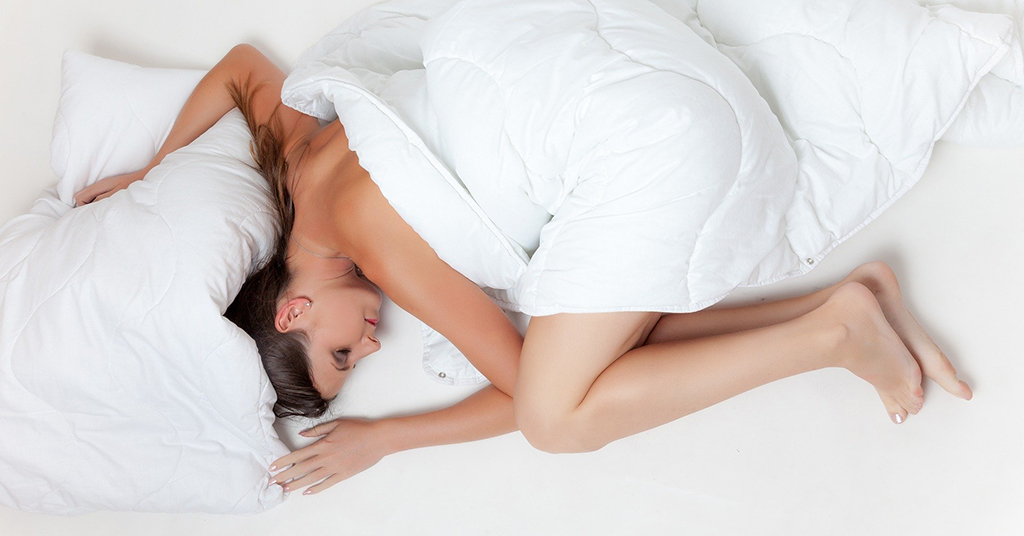Why am I waking up at 3 AM?
Insomnia includes trouble falling asleep and staying asleep or waking up throughout the night. This is often a symptom of an underlying imbalance.
Sleep maintenance insomnia describes an inability to stay asleep through the night. Most often, this means waking up several times during the night and struggling to get back to sleep for at least 20-30 minutes. The fragmented sleep, if chronic will decrease both sleep quantity and quality, leading to daytime sleepiness or sluggishness, fatigue.
I often see patients in my office who are waking up around the same time every night between 2 to 3 AM and having a hard time falling back asleep. They are wondering what the root cause of their ongoing sleep issues might be. As a Functional medicine practitioner, I have a more comprehensive approach to this common complaint. Instead of putting everybody on the same sleeping aid and hoping that’s going to cure their problem, I take a deeper look at potential reasons for this awakening at 3 AM.
Here are some possible root causes for this waking up at 3 AM and not be able to fall asleep:
- Sleep apnea. If you have this disorder, you occasionally stop breathing during sleep. Besides waking you up, sleep apnea can disrupt your heart rhythm and reduce the flow of oxygen to your brain and body. Other symptoms of sleep apnea include:
- Snoring.
- Abrupt awakenings accompanied by gasping for air or choking.
- Daytime sleepiness or fatigue.
- Difficulty concentrating during the day
- Cortisol elevation at night. Your adrenal glands secret cortisol in response to signals from your brain. In an ideal situation, the cortisol is high in the morning and then slowly drops towards the end of the day and stays low at night. During sleep the cortisol should remain low, or if it goes up the person is likely to wake up. If your cortisol is high before bed you will have trouble falling asleep. If the cortisol starts spiking before bedtime, you’ll likely have awakening around 2 to 3 AM. This is a common imbalance that I see in my practice in people with adrenal fatigue and high stress.
At Restore Balance, we check a four-point cortisol test to assess this dysfunction.
- Blood sugar imbalances. The brain consumes a tremendous amount of energy at night while processing complex information, creating long-term memories, clearing out toxins, and carrying out repair and regeneration functions. It needs steady supplies of blood sugar to stay fueled. During sleep the brain goes a long period without quick supply of dietary glucose. To compensate, the body secretes the hormone cortisol, which triggers the release of stored glucose to keep the brain fed during the night-long fast. Eating large amounts of carbohydrates, using caffeine and energy drinks during the day puts the body on a roller coaster of highs and lows blood sugars. As a result, people with low blood sugar do not make the right amount of cortisol at the right times to keep energy levels balanced and the brain fueled, including during the night. What’s worse, cortisol production decreases the more this process keeps going.
When your blood sugar drops too low during the night, the body releases “fight-or-flight” hormones. These stress hormones raise blood sugar back to a safer level to keep the brain functioning. Unfortunately, they also raise stress, which explains those anxiety attacks that wake you up in the middle of the night. A thorough assessment of your blood sugar regulation can uncover the blood glucose imbalances. - Hormone imbalance. When your hormonal balance is disturbed, it can lead to sleeping issues. Many women experience hot flushes at night and disturbed sleep consequently. At Restore Balance we work on identifying and addressing different hormonal imbalances, so that your body gets re-balanced in a more natural way.
- Nutrient deficiencies. Tryptophan is essential for production of serotonin, your stress hormone and melatonin, your sleep hormone. Magnesium is also an important mineral that many of us need and might be deficient in, due to our foods being depleted in magnesium. Magnesium helps with muscle relaxation as well deep sleep. At Restore Balance we check nutrient levels and recommended optimal type of supplementation for each person, depending on their imbalances.
- Alcohol and caffeine. Caffeine is a stimulant, and some people are slow caffeine metabolizers. This means caffeine it can still be present in your body 12 hours after consumption, contributing to sleeping issues. Alcohol can also cause rebound anxiety and interrupted sleep. Even if a glass of alcohol might help you fall asleep, the quality of sleep maybe be affected. Consider not drinking coffee after 12 pm and decreasing the alcohol consumption.

Tips for Falling Back Asleep
Here are some tips, which I hope you find useful in helping you fall back asleep:
- Pay attention to your body. Consider eating a snack before bedtime if you wake up hungry.
- Practice progressive muscle relaxation techniques and deep breathing exercises when you wake up.
- Don’t watch the clock.
- Keep electronics off.
- Keep your bedroom cool. Cooler temperatures are better for sleep.
- Use lavender essential oil. Rub a few drops of lavender oil on your temples or wrists, use a diffuser or an inhaler. Lavender can help you relax further and fall asleep faster.


Pingback:Why is vitamin D important? - Restore Balance